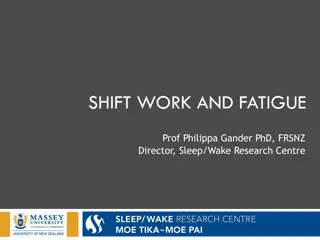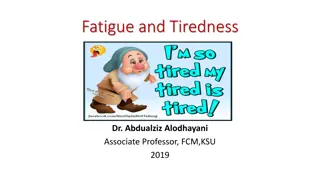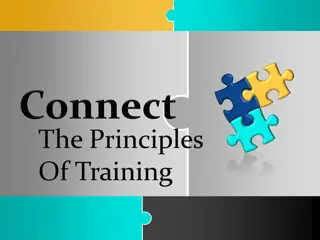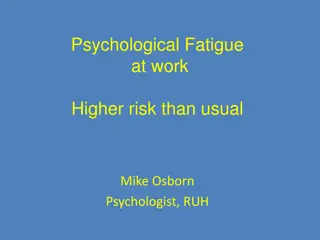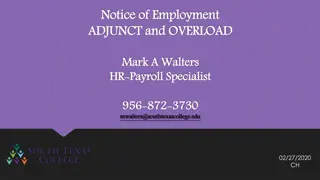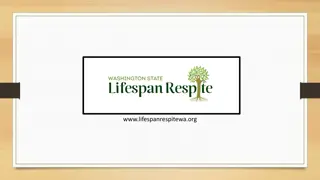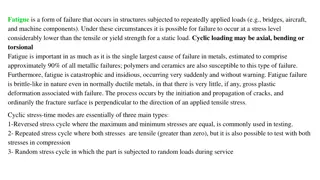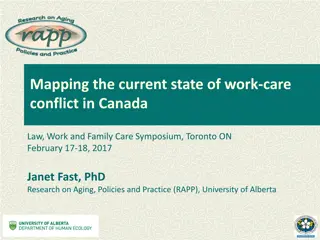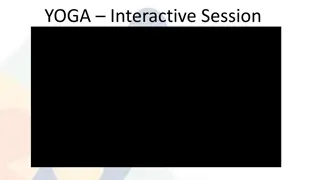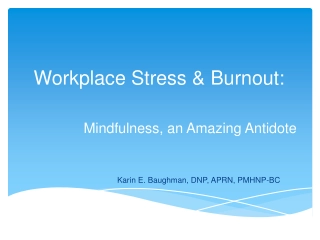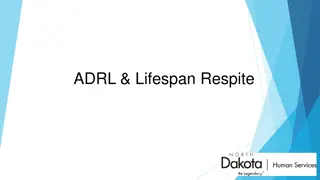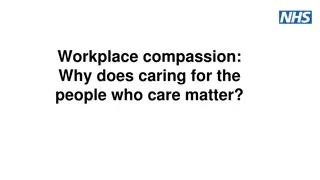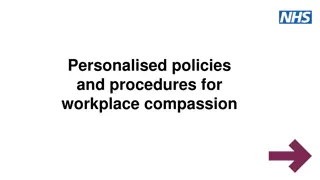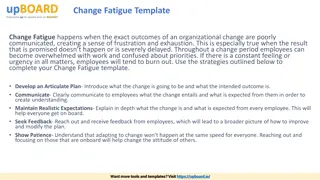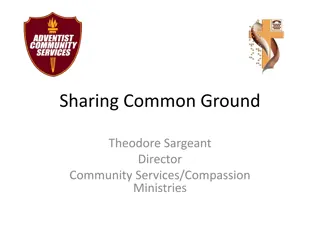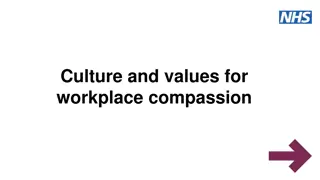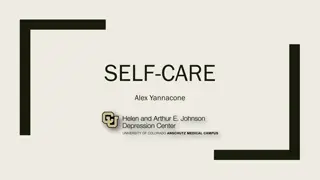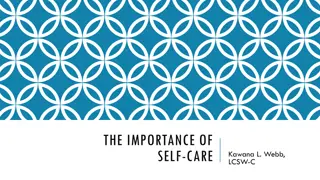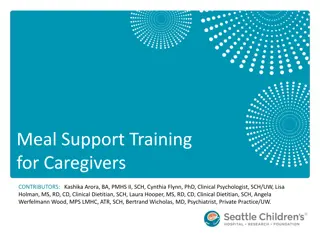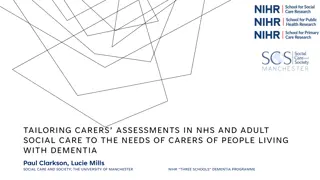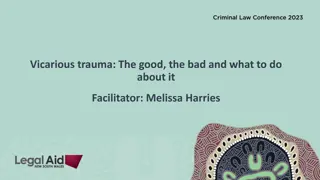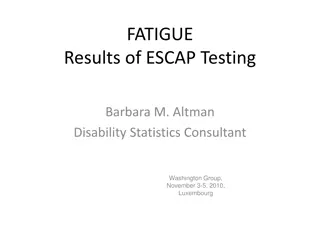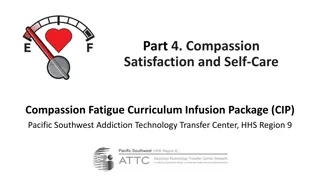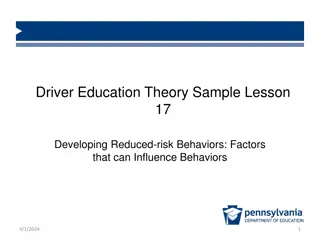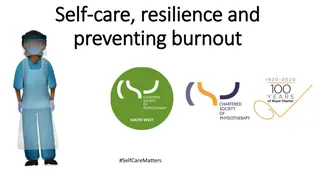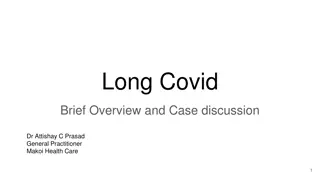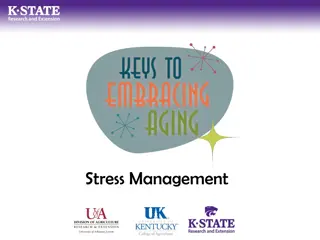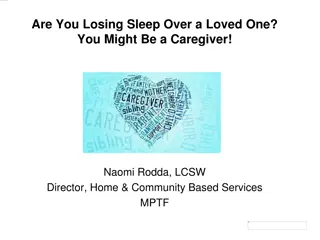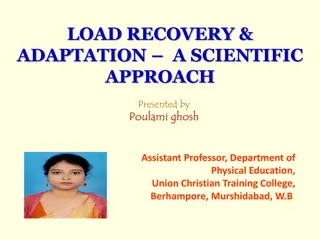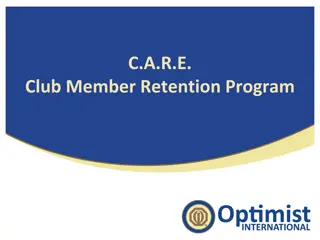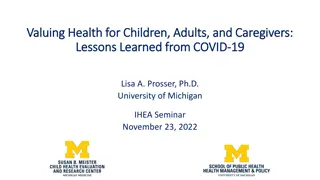Recognizing and Addressing Compassion Fatigue, Burnout, and Role Overload in Caregivers
Understanding the concepts of compassion fatigue, burnout, and role overload is crucial for caregivers to prevent and manage the negative impacts of their work. Compassion fatigue involves emotional and physical exhaustion, while burnout results in a sense of overwhelming stress and detachment. Role overload occurs when caregivers face too many competing demands. Recognizing warning signs like physical, behavioral, and psychological symptoms is essential for self-care and maintaining well-being in caregiving roles.
Download Presentation

Please find below an Image/Link to download the presentation.
The content on the website is provided AS IS for your information and personal use only. It may not be sold, licensed, or shared on other websites without obtaining consent from the author. Download presentation by click this link. If you encounter any issues during the download, it is possible that the publisher has removed the file from their server.
E N D
Presentation Transcript
Compassion Fatigue Burnout Self Care It s all about You!
Compassion Fatigue Role Overload Burnout
What is Role Overload? Too many competing demands
What is Compassion Fatigue? Profound emotional and physical exhaustion Slow erosion of connections with others Is not constant
What is Vicarious Trauma? Change in beliefs about the world A consequence of caring and facing the consequences of trauma Happens over time Not the result of one event
Warning Signs: Physical Physical exhaustion Sleep disturbances Headaches or Migraines Increased illness Emotional stress shows through physical symptoms (e.g., back ache, headache) Being anxious and over aware of potential illnesses
Warning Signs: Behavioral Increased use of alcohol or drugs Other addictions Missing work Anger and irritability Exaggerated sense of responsibility Avoidance of clients Trouble making decisions Forgetfulness Compromised care for clients Silencing response
Warning Signs: Psychological Emotional exhaustion Distancing Negative self-image Depression Reduced ability to feel sympathy and empathy Cynicism and embitterment Resentment Dread of working with specific clients Feeling of professional helplessness Reduced sense of enjoyment in career Disruption of world view heightened anxiety or irrational fears
Warning Signs: Psychological (more) Increased sense of personal vulnerability Inability to tolerate strong feelings Problems with intimacy Hypervigilance Participant stories begin intruding on your own thoughts and daily activities Insensitivity to emotional material Loss of hope Difficulty separating personal and professional life Failure to nurture and develop nonwork- related aspects of life.
What to do? By developing the deep sense of awareness needed to care for ourselves while caring for others and the world around us, we can greatly enhance our potential to work for change, ethically and with integrity for generations to come. Laura van Dernoot Lipsky Trauma Stewardship
Activity: Create a 5-Degree Barometer Overwhelmed, exhausted, burned out, unable to function, overcome by fear Not coping well Calm and Relaxed Feeling OK! A little unsettled What do you feel at each stage?
Get to the root of it
Create a plan that is Uniquely You!
Resources List the contact information for your agency EAP and other resources on this slide


